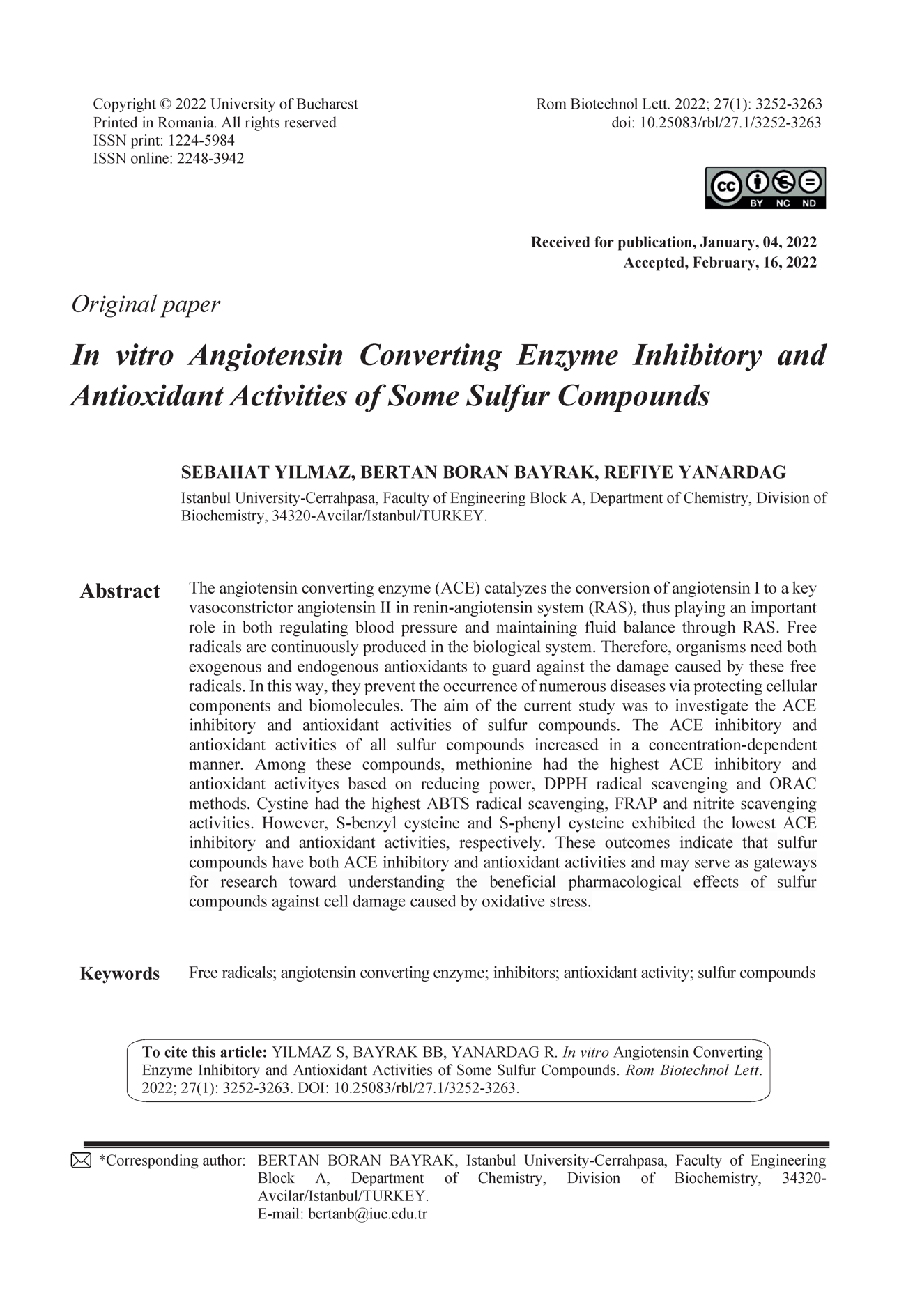In vitro Angiotensin Converting Enzyme Inhibitory and Antioxidant Activities of Some Sulfur Compounds
DOI:
https://doi.org/10.25083/rbl/27.1/3252-3263Keywords:
Free radicals, angiotensin converting enzyme, inhibitors, antioxidant activity, sulfur compoundsAbstract
The angiotensin converting enzyme (ACE) catalyzes the conversion of angiotensin I to a key vasoconstrictor angiotensin II in renin-angiotensin system (RAS), thus playing an important role in both regulating blood pressure and maintaining fluid balance through RAS. Free radicals are continuously produced in the biological system. Therefore, organisms need both exogenous and endogenous antioxidants to guard against the damage caused by these free radicals. In this way, they prevent the occurrence of numerous diseases via protecting cellular components and biomolecules. The aim of the current study was to investigate the ACE inhibitory and antioxidant activities of sulfur compounds. The ACE inhibitory and antioxidant activities of all sulfur compounds increased in a concentration-dependent manner. Among these compounds, methionine had the highest ACE inhibitory and antioxidant activityes based on reducing power, DPPH radical scavenging and ORAC methods. Cystine had the highest ABTS radical scavenging, FRAP and nitrite scavenging activities. However, S-benzyl cysteine and S-phenyl cysteine exhibited the lowest ACE inhibitory and antioxidant activities, respectively. These outcomes indicate that sulfur compounds have both ACE inhibitory and antioxidant activities and may serve as gateways for research toward understanding the beneficial pharmacological effects of sulfur compounds against cell damage caused by oxidative stress.




